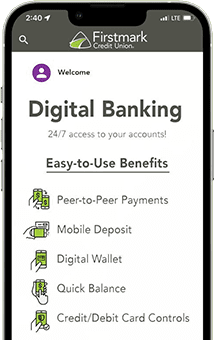- 2024 Firstmark Credit Union. All Rights Reserved.
- Website by Innov8 Place
- Contact Us
- Careers
- Rates
- Locations
- Routing / Transit Number : 314088556
A wire transfer is a type of electronic payment service for transferring funds between financial institutions through the Federal Reserve Wire Network. Wire transfers involve a sending and receiving institution and require information from the party initiating the transfer, such as the receiver’s name and account number. Wire transfers don’t involve the physical exchange of cash but are settled electronically.
Receiving a Domestic or International Wire Transfer:
Sending a Domestic Wire Transfer
Sending an International Wire
A wire transfer generally cannot be canceled, so make sure you know the person you are sending money to.
If you are a victim of a wire transfer or an online payment scam, there is no guarantee that you can get your money back. Report it to your financial institution immediately. You can also report the scam to the Federal Trade Commission (FTC) at www.ReportFraud.ftc.gov or visit www.consumer.ftc.gov to find more tips and learn how to avoid scams.
* Every company/employer may do things differently and offer you the ability to update your direct deposit information through their own form or company portal.


Founded by teachers, powered by members, and built for your community!






To make this process as quick as possible, please have the following ready for yourself and any joint account holders on the account, including beneficiary’s:
Choose one of the following:
Needed Items
To make this process as quick as possible, please have the following ready for yourself and any joint account holders on the account, including beneficiary’s: